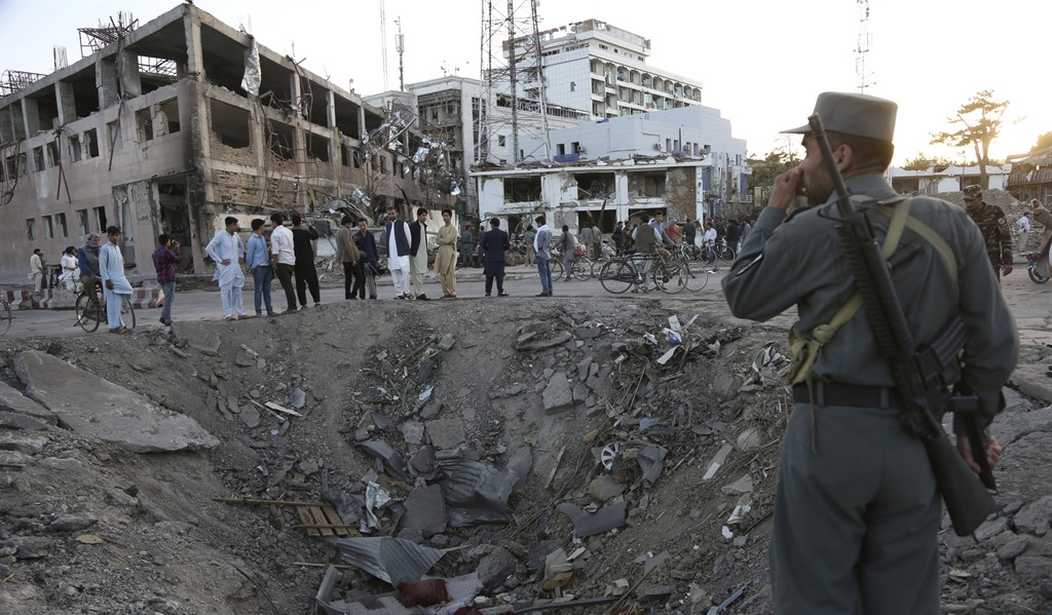In 2068, some 50 years from now, will American soldiers still be dying in Afghanistan?
“The problem is,” argues Leon Panetta, the former Defense Secretary and CIA Director under President Obama, “you cannot allow Afghanistan to fail and become a safe haven for al-Qaida and for terrorism more broadly to attack our country.”
In addition to sending more American soldiers and more U.S. greenbacks to the Afghan government in “the short term,” Panetta recently suggested to Yahoo News that the U.S. will “probably have a long-term presence similar to our presence in South Korea.”
The Korean War began in 1950 and yet today, 67 years later, more than 28,000 U.S. military personnel remain stationed on the Korean peninsula. If Afghanistan turned out like South Korea, there would still be U.S. troops in Afghanistan in 2068 . . . and counting. There is no talk of bringing those U.S. military personnel out of South Korea.
Or bringing soldiers home from Afghanistan.
Instead, more are going in.
Afghanistan is not South Korea, either. South Korean police and military personnel are not regularly turning their guns on Americans, as has been the case in Afghanistan.
“We’re not winning in Afghanistan,” Secretary of Defense James Mattis acknowledged last month at a congressional hearing. The retired general recognizes that 16 years after then-President George W. Bush responded to those in Afghanistan responsible for the 9/11 attack on 9/11 by sending in the military, the main enemy — the Taliban — still controls nearly 40 percent of the country’s land and about a third of the population.
Recommended
President Obama had surged U.S. forces to more than 100,000 in 2009, but then pulled back. Now the U.S. force in-country is 8,400 along with 7,000 soldiers from allied countries. But President Trump has authorized Mattis to increase force levels in Afghanistan as desired, so we know the numbers are going up.
Mattis promises to defeat the Taliban pretty quickly. He may very well be largely successful in that endeavor. But here’s the problem: Even destroying the Taliban doesn’t win the war and begin the process of withdrawing U.S. troops.
Not according to the rationale that the Afghan government must be at least plausibly able to not fall completely apart . . . and therefore prevent terrorists from running wild on its turf.
Sec. Mattis agrees that pacifying and building-up Afghanistan will “probably require a residual force” able to engage extremist groups over time and keep them “at a level of threat that the local government and the local security forces can handle.”
It is what one senior Trump administration official dubbed “a ‘victory problem.’”
If we cannot leave, how can we say we have won the war?
“The question of how to define victory in Afghanistan bedeviled both of Trump’s predecessors,” Yahoo News reporter Oliver Knox writes. Now it falls to President Donald Trump.
Trump would be wise to listen to Andrew Bacevich, whose son was killed in Iraq. Bacevich is also a professor of history and international relations at Boston University. He complains that Afghanistan is “quite literally the forever war” and that we need to reassess the entire approach in the Middle East.
“The United States needs to cut its losses and try something else,” Bacevich writes, “other than the ‘war on terror.’”
Politicians never cut their losses; they try to shift the blame. But could a businessman-turned-president see the problem with war policy as usual?
If our leaders cannot explain what victory means after 16 years into our nation’s longest war — and have no plan for achieving that victory — it is time to do something different.

























Join the conversation as a VIP Member